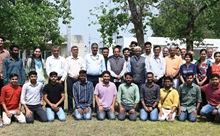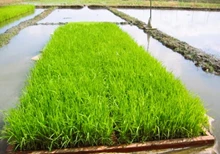
It is the food, which we choose to eat in the Breakfast, Lunch and then in Dinner. It also depend from where the Fruits and Vegetables were grown. The water is so polluted, which irrigated the field also transforms the heavy metals in the food. Which are dangerous. Recent study by the Food and Drug Administration of USA given the advisory.
Heavy metals are introduced into the environment generally as by-products of industrial pollution accumulating in the soil eventually accumulating in the foods (especially organ meats) that we eat. Some examples of heavy metals include arsenic, cadmium, lead, and mercury.
The heavy metal cadmium, for example, is emerging as a major cause of kidney disease, osteoporosis, and cardiovascular disease. And cadmium has a half life of up to 30 years, which is why it accumulates in our organs, especially in our kidneys and liver throughout our lifetime. And once our kidneys reach a toxic threshold of cadmium, they begin to fail, and that's certainly not a good thing! In certain regions, the levels of cadmium and lead in fish are higher than the recommended legal limits for human consumption, and this poses a serious problem.
The report speaks that reality about our food supply in which metals, such as arsenic, lead, cadmium, mercury and others, are present in certain foods. These elements occur naturally and as environmental pollutants in air, water and soil, and they enter the food supply when plants take them up as they grow.
The Food and Drug Administration actively monitors the levels of these metals because at high levels they can be toxic and present a unique danger to those who are the most vulnerable: our children. The agency is working to reduce the health risks that these elements present and last year established a workgroup of food safety experts to help shape what the FDA will do to protect consumers of all ages from these metals, when present in foods.
Conrad Choiniere, Director of the Office of Analytics and Outreach at FDA’s Center for Food Safety and Applied Nutrition, outlines why their work matters. The focus is first on metals like lead, arsenic, cadmium, and mercury in foods, cosmetics, and dietary supplements. “These naturally occurring contaminants are present in many of the foods we eat, but can be especially harmful to children because of concerns about effects on their neurological development. So we’re looking into the presence of these four metals in foods commonly consumed by children. We’re also concerned about the rest of the population, but our initial focus is on those who are the most vulnerable,” he further added.
Because these metals occur naturally in the environment or have infiltrated water, air and soil because of pollution, they’re hard to get rid of or even just minimize. When these contaminants are in soil or water, they are absorbed into plants, which are then eaten by people or by animals that enter the food supply. “This is what we observed with methylmercury, which came from pollutants that got into our water and from there into our seafood supply.” This discussion marked six months’ work by the team.
Other heavy metal toxicities include lead toxicity, which can result in kidney and red blood cell damage, impaired nervous system development, and infertility. And mercury toxicity, especially in utero can lead to severe health consequences. The list goes on and on.











